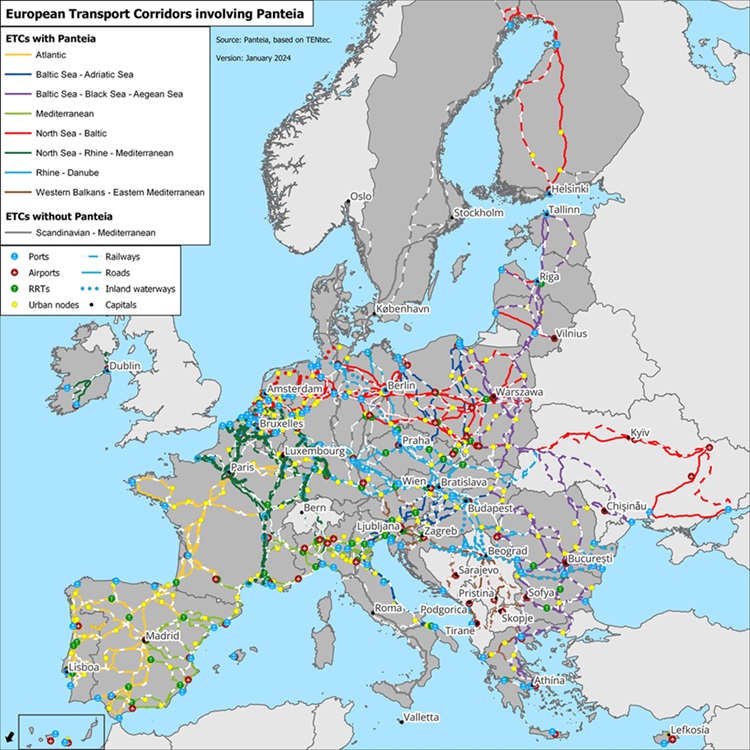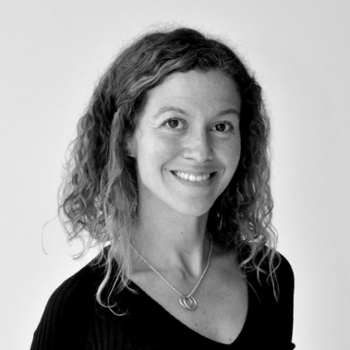New round of TEN-T Corridor Studies to start in March
On the 1st of March 2024, the next phase of the TEN-T Corridor Studies is set to commence. These aim to support the European Commission in monitoring the status of the European transport network, in accordance with the revised TEN-T Regulation. The overarching objective remains to establish a high-quality and efficient transport network spanning the entirety of the EU, integrating various modes of transportation. The core network with the most important connections is to be completed by the year 2030, and the extended core network by 2040.
Panteia has been involved in the corridor studies for many years and will continue to be in the next phase of the studies. Panteia will be involved in 8 of the 9 newly created European Transport Corridors (see the map below), which are combinations of the Core Network Corridors and Rail Freight Corridors from previous studies. These include the two Corridors crossing the Netherlands (North Sea – Rhine – Mediterranean and North Sea – Baltic), all Corridors crossing through Ukraine (BBA, NSB, MED, RD) and Moldova (BBA), as well as the Western Balkans – Eastern Mediterranean Corridor.
In the relevant Corridors, Panteia will supply the country experts for the Netherlands, Hungary, and Ukraine. Panteia’s experts are going to make sure all the information on projects and the status of the network is up-to-date for their respective countries. Furthermore, Panteia will be leading the consortium that follows the newly created Baltic Sea – Black Sea – Aegean Sea (abbreviated BBA) corridor. The corridor spans nine EU countries, and in addition Ukraine and Moldova as well. One of the major objectives of the BBA Corridor is to ensure the seamless integration of Ukraine and Moldova into the TEN-T.
Panteia shall also be present during the Connecting Europe Days, taking place 2-5 April 2024 in Brussels. On the 5th of April, there will be a dedicated meeting for each European Transport Corridor, where, among other things, the Corridor is introduced and its main challenges over the coming years are discussed.


